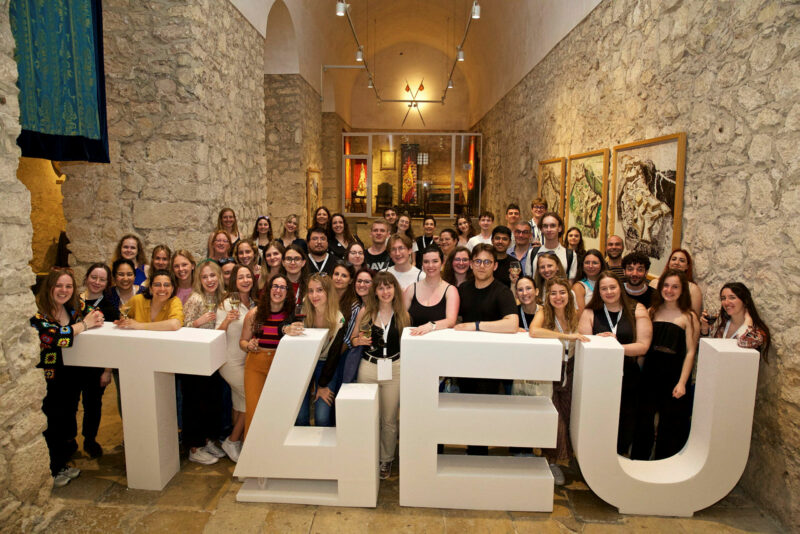The European Commission today approved the follow-up proposal of the Transform4Europe Alliance, supporting the European University for another four years with a budget of 14.4 million Euro from the Erasmus+ programme. The European university alliance aims to train a new generation of young Europeans who will work together across disciplines to acquire digital, intercultural and entrepreneurial skills. In the last three years, 7 partners have teamed up to achieve these goals: Saarland University (Germany), the University of Alicante (Spain), the Estonian Academy of Arts in Tallinn (Estonia), the Silesian University in Katowice (Poland), the University of St. Kliment Ohridski in Sofia (Bulgaria), the University of Trieste (Italy) and the Vytautas Magnus University in Kaunas (Lithuania). The consortium is proud to continue its ambitious activities with the Universidade Católica Portuguesa in Portugal, the University of Primorska in Koper in Slovenia and the French University Jean Monnet in Saint-Étienne for the prolonged funding period. In addition, Mariupol State University in Ukraine will join the network as a strategic associated partner.
Over the next four years, many of the measures that have been tested and found to work well in the pilot phase since 2020 will be extended to as many students, scientists and university employees as possible. “They should jointly benefit from the virtual and personal exchange and cooperation across European borders,” emphasizes Cornelius König, Vice President for Internationalization and Europe at the coordination institution Saarland University. To this end, the joint infrastructure for service offerings is to be expanded so that students at partner universities have access to all online courses and can use teaching and learning systems such as Moodle or the libraries’ online services across borders. “We also aim to strengthen mobility between locations, both through virtual offerings and through mobility weeks and short-term stays. This is particularly attractive for students who don’t want to spend an entire semester or academic year abroad,” König says.
In the context of “Transform4Europe”, joint study offers were developed, which are now to be realized in the continuation phase. The first four international master’s programs will start in the winter semester of 2024/25. New master’s and Bachelor’s programmes will follow in the upcoming phase. “We also want to increase joint supervision of doctoral students at two of the partner universities and offer them the opportunity to acquire various key competencies during their doctoral phase. University staff should also benefit from joint didactics courses,” explains Vice President König. Furthermore, the links with the regional ecosystems will be strengthened by further developing the T4EU Transformation Labs, co-creational think tanks in the three focus areas of the Alliance (digital, environmental and societal transformation) serving to initiate a dialogue between regional stakeholders, researchers, students and staff. At the same time, the Alliance will embed its regional ecosystem in a much broader approach highlighting its cultural, linguistic, social, and political heritage. Developing a green and inclusive European campus life is another objective of Transform4Europe. Finally, a number of outreach activities will be developed to promote international visibility and enhance the societal and global impact of T4EU, including a lifelong learning scheme.
Mariupol State University was added to the Alliance as a “strategic partner” because Ukraine is not part of the Erasmus+ programme The university alliance wants to try, under the currently extremely difficult conditions, to let the students and university employees in Ukraine participate in the virtual exchange. In addition, the university is to be supported in its reconstruction, if the general conditions allow this.
photo by Transform4Europe






